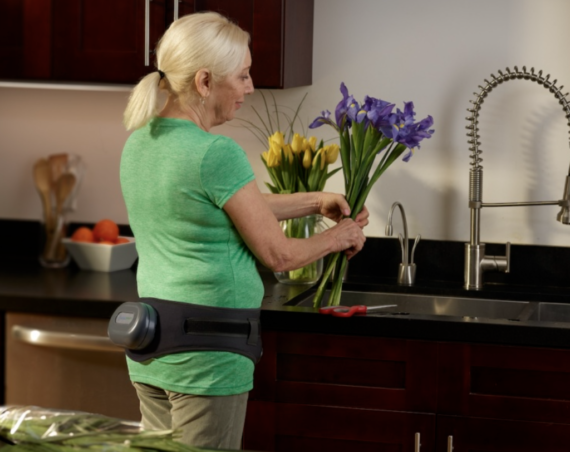
Berlin-based startup Hale has secured €350K in pre-seed funding to redefine women’s pain management. Founded in 2022 by Gaia Salizzoni and Vittoria Brolis, Hale is on a mission to revolutionize patient care through a home-care management app designed to guide genito-pelvic patients throughout their health journey. With a focus on scientific evidence, data integration, and collaboration with existing healthcare systems, Hale aims to bridge the gap in pain research and offer much-needed support to women experiencing pelvic pain.
The round was led by Vento, the Italian chapter of Exor Ventures, with contributions from B Heroes, Delirus Capital, StartupGym, Moonstone Fund, and a group of private investors such as Luca Foschini (founder of Evidation Health), Francesco Zaccariello (founder of eFarma), Alice Ravizza (medical device expert), and Veronica Diquattro (Global Markets at DAZN, formerly Google and Spotify).
Pelvic pain is a significant health issue affecting 1 in 4 women regularly, often linked to conditions like endometriosis, vulvodynia, or a tense pelvic floor. Despite its prevalence, these conditions remain widely misunderstood, leading to a lack of proper diagnosis and treatment options. The consequences of untreated pelvic pain can be devastating, impacting women physically, mentally, and emotionally, affecting their work, relationships, and daily activities.
Hale’s co-founders have firsthand experience with the challenges faced by patients seeking relief from pelvic pain. Brolis shares: “It took us years to get the right diagnosis, and along the way, we tried treatments and procedures that didn’t work. We put together a team of experts in gynecology, physiotherapy, urology, and psychotherapy. With their help, we’ve reached a point of balance.”
Their journey to find the right diagnosis and effective treatments inspired them to create Hale, driven by the need to address several structural issues in the current healthcare system. These challenges include insufficient research, a shortage of specialists, limited diagnostic options, and high out-of-pocket costs for patients. Hale intends to disrupt this status quo and offer a comprehensive, patient-centric approach to women’s pain management.
“Healthcare systems need to maximize resources, address their inefficiencies, and personalize health pathways”, explains Salizzoni. “Technology will play a crucial role in decentralizing care through home assistance, patient involvement, and remote monitoring.”
Hale’s vision is to establish an online clinic for women’s invisible pain. Through a combination of solid scientific research, patient data, and collaboration with healthcare professionals, they seek to offer personalized home-care assistance through their user-friendly app. Patients will be able to receive tailored care plans, connect with a private community for support, and monitor their well-being regularly. Soon, they will have access to data-driven personalized advice, consultations with experts, and seamless communication with their medical teams. Hale will also complement traditional therapies by improving patient adherence and provide much-needed psycho-sexual support.
Hale is currently available to patients via monthly subscription, but plans are underway to also offer the service through clinics and corporate health programs.



